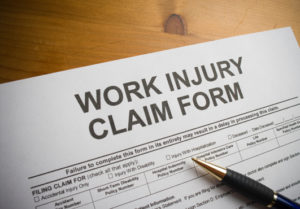 Appealing to a higher court is one choice that employees have if they receive a denial of their workers’ compensation claim. In fact, there are often numerous appeals involved with a complicated case and it can be a laborious and frustrating process. The system functions on tight deadlines and requires large volumes of paperwork. But workers’ compensation benefits are there to provide wage replacement and medical care that can be vital to Georgia workers. So, give yourself the best possible chance for success in overturning an unfavorable decision by following all of the steps and staying within deadlines.
Appealing to a higher court is one choice that employees have if they receive a denial of their workers’ compensation claim. In fact, there are often numerous appeals involved with a complicated case and it can be a laborious and frustrating process. The system functions on tight deadlines and requires large volumes of paperwork. But workers’ compensation benefits are there to provide wage replacement and medical care that can be vital to Georgia workers. So, give yourself the best possible chance for success in overturning an unfavorable decision by following all of the steps and staying within deadlines.
Common Reasons for Denied Claims
Unfortunately, insurance companies often look for any potential explanation to deny benefits. Here are some of the more common reasons:
- Conflicting views on whether your injury was work related or if the injury happened on your own time
- You did not report the claim within 30 days of the injury
- Not seeking medical care
- You and/or your employer did not submit the correct documentation
- You no longer worker for the company you are filing a claim against
- Your condition did not meet state guidelines
The Appeals Process
Hire a Workers’ Compensation Attorney
If you have not already done so, now is the time to hire a qualified workers’ comp attorney to help you with the appeals process. You need someone who can assess your claim and help you understand your rights and options. Too often, individuals will just accept a denial of benefits, which could end up a disastrous move financially. A workers’ comp lawyer can help you avoid this by guiding you through the levels of appeal.
Mediation
The first step is requesting a hearing with the SBWC by way of WC-14 form and is the time you can request a hearing or mediation. You will have a hearing date automatically assigned unless you request mediation—or the State believes that a settlement can be mediated with your case. Mediation is an informal negotiation process where an impartial third party facilitates a discussion between you and your employer/insurance company towards an agreement. You are not under oath and it is a voluntary and private process. Basically, it allows both parties to share facts and circumstances to resolve issues and settle. It can be a powerful tool and a great way to help you get your benefits faster but is not necessarily appropriate for every case.
Hearing
If a settlement cannot be reached the case is scheduled for trial before an administrative judge where you have the chance to present testimony, documents, and argue your case. Your hearing will take place in the same county where the workplace accident occurred. During your hearing you will have the show the judge why you should be paid workers’ comp benefits and you must have evidence to support your position.
The judge will hear each side and ask relevant questions. He or she will listen to arguments from the attorneys and apply case law to the facts of your specific case. Eventually, a judgement is made either in your favor or the favor of your employer. Both parties may appeal the Georgia State Board of Workers’ Compensation hearing decision, but it must be done within 20 days of the award.
It is not uncommon to have your initial workers’ comp claim denied and it is not indicative of whether you will receive benefits. Don’t give up hope, just understand you must take extra steps to secure your benefits. And consider hiring a lawyer to help. Statistically speaking, this is a move that pays off for workers’ and will save you the headache of filling additional paperwork, attending settlement meetings alone, or even having to present your own evidence at a hearing.
